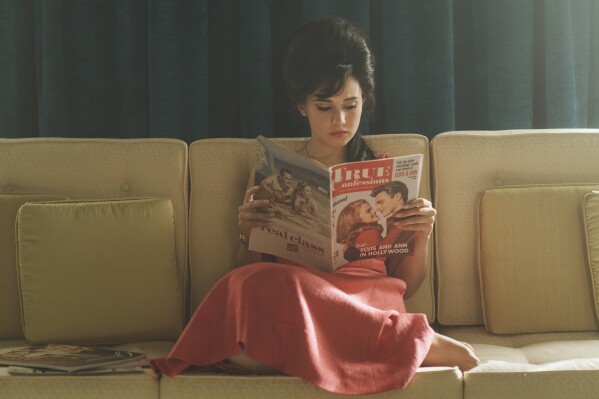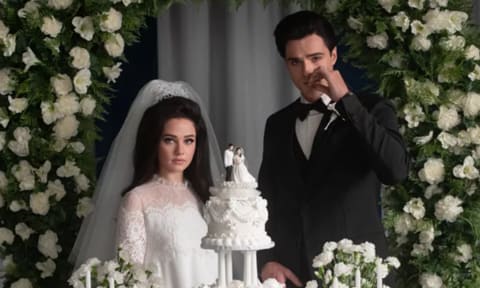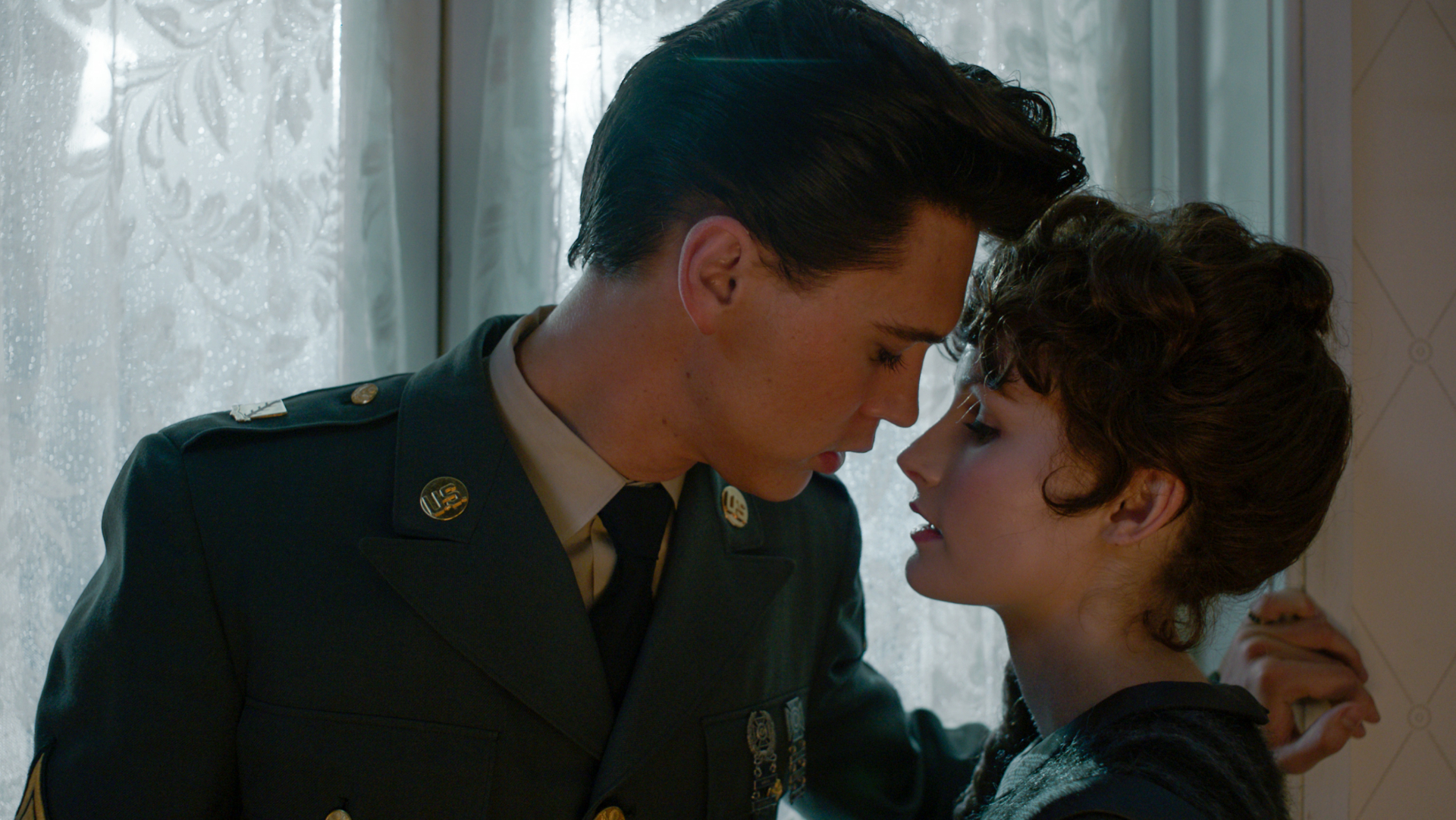With “Priscilla,” director Sophia Coppola’s new film, the life of Priscilla Presley is re-explored through the eyes of a female filmmaker for the first time. Priscilla and Elvis (played by Callie Spaeny and Jacob Elordi respectively) are represented through Priscilla’s point of view for the first time on the big screen, giving their story a much-needed rewrite in the public eye.
Sophia Coppola worked closely with Priscilla Presley’s 1985 autobiography, “Elvis and Me,” as well as with Presley herself to corroborate the “Priscilla” screenplay with the reality of Presley’s experience.
While Baz Luhhrman’s glitzy Elvis biopic last year depicted the rock legend as a flawed man besieged by drug addiction, Sophia Coppola’s take on his life puts him at the helm of his substance abuse. Through the depiction of his near-constant pressure on Priscilla to take drugs, Coppola robs him of any sympathy audience members might normally reserve for someone plagued by their vices. Coppola’s storytelling holds the late singer accountable for his actions and never once uses his fame as an excuse for his consistent mistreatment of Priscilla.
Girlhood in Coppola’s world of film is undeniably beautiful, love is electric though fleeting, and money is abundant: values that I imagine are increasingly desirable to young girls, especially in a comparison-ridden social climate.
For the self-proclaimed coquette Lana Del Rey-Sophia Coppola-TikTok girlies, I am sorry to say you might not find much here. While the same aesthetics that queued young girls onto Coppola’s filmography haven’t changed, the message has.
Sophia Coppola will not be misconstrued as glamorizing the life of Priscilla or encouraging the Lolita-like aesthetic that many of her fans aspire to. It is staunchly clear that while girlhood is initially displayed through enchanting cinematography and set design, the often dark reality of it is revealed swiftly and succinctly.
Coppola makes efforts to avoid the sexualization of a teenaged Priscilla, even if only through the lens of the story. Absent from the film are any depictions of sexual acts between then-minor Priscilla and the 24-year-old Elvis. The few somewhat intimate scenes that are present show Elvis as demonstrating a distaste for sex, shunning it to Priscilla as a distraction.
The only real display of sexuality in their relationship comes from Priscilla who periodically pleads with Elvis to sleep with her though he warns her that things could go “too far” between them and refuses any physical contact beyond brief kisses. Coppola lets Priscilla’s point of view lead her storytelling, and if that point of view denies explicit sexual predation from Elvis, Coppola tells that truth in the story.
Jacob Elordi’s past onscreen appearances include “The Kissing Booth” which had not one, not two, but three total movies in the anthology. The teen romance drama co-starring Joey King was sneak dissed left and right by Elordi, who played the main love interest for King’s character, Noah Flynn. Past his stint in lowbrow film, Elordi has made waves as Nate Jacobs in Sam Levinson’s HBO hit, “Euphoria.” The misogynistic, manipulative character drew the audience’s attention and cemented Elordi as a major actor. This common view of Jacob Elordi as both romantic and undoubtedly toxic makes him especially fit for the role of Elvis, who similarly fits the same description in the public eye.
Callie Spaeny, who plays the film’s protagonist, has previously been seen on “Pacific Rim Uprising” and “The Craft: Legacy.” With drastically less media attention than Jacob Elordi prior to the release of “Priscilla,” Spaeny perfectly encapsulates the transition Priscilla herself faces in the film. Her acting prowess is undeniable and her performance is exquisite.
Sophia Coppola is mostly known for “Lost in Translation” and “Marie Antoinette” as well as being “Godfather” director Francis Ford Coppola’s daughter. That being said, her start as one of Hollywood’s most obvious nepo babies, has somehow led to her standalone talent, which has now surpassed any negative press from the beginning of her career. She masters the art of the montage in “Priscilla,” using it as a vehicle for highlighting the woman behind the character of Priscilla. Sophia Coppola understands the multi-faceted nature of womanhood, as well as privilege, something I presume comes from her upbringing with vast wealth, fame, and opportunity.
While the movie-going experience is drastically better in the theater rather than on laptops and TVs (or if you’re anything like me, a string of 60 TikTok snippets) “Priscilla” is fast-paced enough that even the most chronically online (*cough cough* me), would find it difficult to miss even a few seconds of the movie to check their phones. Please, if you have the time, transportation, and funds for it, watch “Priscilla” on the big screen where it was meant to be seen. But if any of these are the slightest hindrance to you, wait a few months for it to come out on Paramount+.








Brava, Bev!